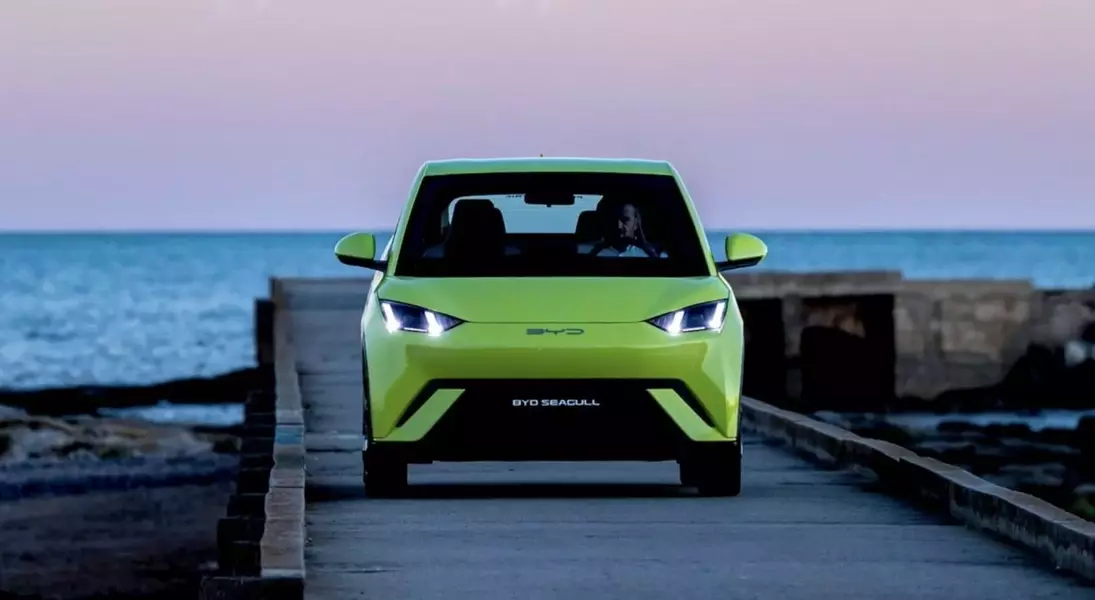
In a rapidly evolving automotive landscape, the narrative surrounding Tesla's market valuation is shifting. Once seen primarily as an electric vehicle (EV) manufacturer, Tesla is increasingly viewed as an AI and robotics company. However, this shift in perception faces competition from Chinese automakers like BYD, which are advancing autonomous driving technology at unprecedented speeds. BYD has introduced its "God’s Eye" intelligent driving features to mass-market models, challenging Tesla's dominance by offering advanced technology at significantly lower prices. This development underscores the global competition in EV and autonomy sectors, highlighting China's strategic push towards electrification and technological innovation.
BYD Leads the Charge with Cutting-Edge Technology at Affordable Prices
In the heart of a bustling technological revolution, BYD, a leading Chinese automaker, has made waves with its innovative approach to electric vehicles. On a recent Monday, the company announced it would soon integrate its state-of-the-art "God’s Eye" intelligent driving system into its affordable Seagull model, priced at just $9,500. This move marks a significant milestone, as BYD CEO Wang Chuanfu emphasized that advanced technology should be accessible to everyone, not just luxury car owners.
The "God’s Eye" system, developed entirely in-house, brings features typically reserved for upscale EVs—such as remote parking via smartphones and autonomous overtaking on roads—to a broader audience. The level of autonomy will vary based on the sensors equipped in each vehicle, with pricier models featuring LiDAR sensors for superior object detection in challenging conditions. BYD's strategy extends beyond the Seagull; the company plans to roll out these advanced features across its Ocean, Han, Song, and Yuan lineups, as well as hybrid vehicles, without additional charges.
China's government has played a pivotal role in fostering this technological advancement through strong incentives for EV adoption. BYD has capitalized on these policies, achieving profitability in the EV sector—a feat previously unmatched except by Tesla. With over 4 million cars sold in 2024, BYD has expanded its footprint into international markets, including Europe and South America, promoting economic growth and job creation. This expansion exemplifies China's soft power and strategic positioning in the global automotive industry.
Contrastingly, Western automakers have slowed their capital deployment due to declining sales growth, particularly in the United States, where charging infrastructure remains inadequate. Tesla, once a frontrunner, has faced challenges in key markets like California and Germany, possibly influenced by CEO Elon Musk's recent political stances. Meanwhile, Musk's focus on other priorities, such as policy debates in Washington, D.C., may further impact Tesla's progress in autonomous technology.
In contrast, BYD's relentless pursuit of innovation and affordability positions it as a formidable competitor in the global EV market. Videos from China suggest that the country's self-driving technology can rival Tesla's Full-Self Driving (FSD), despite Tesla's struggles with regulatory hurdles in the region. BYD's success highlights the importance of government support in achieving significant policy objectives and demonstrates the potential for emerging markets to lead technological advancements.
From a journalistic perspective, BYD's achievements serve as a reminder that innovation thrives when it is accessible and affordable. The company's commitment to making advanced technology available to all, coupled with its rapid expansion into global markets, sets a new standard for the future of transportation. As the world transitions to sustainable energy solutions, BYD's approach offers valuable lessons on balancing technological prowess with economic viability, paving the way for a more inclusive and sustainable future.
